Featured
From CNN: How the Maldives became the biggest 2020 international tourism success story

By Lilit Marcus, CNN
(CNN) — In most destinations, being a million tourists short over the previous year would be a huge cause for concern, the result of a horrible natural disaster. But that was before 2020, and before the coronavirus pandemic changed the way we travel forever.
The Maldives, an Indian Ocean island archipelago practically synonymous with romance, normally sees north of 1.7 million visitors per year. In 2020, it had around 500,000. And despite the significant decrease, it marks one of the most successful tourism stories amid the pandemic
While many other destinations slammed their borders closed, the Maldives chose to fully reopen to travellers from any country, regardless of the status of the virus there, in July 2020.
Part of the decision was financial. According to data from Michigan State University, tourism contributes 28 per cent of the Maldives’s GDP, one of the highest totals in the world.
The country’s geography also lends itself well to coronavirus protocols. Many hotels and resorts are on their own private islands — there are more than a thousand to choose from, even before man-made islands come into the equation — which makes isolating and social distancing exceptionally easy.
Countries around Asia and the Pacific have been more cautious about reopening than those in Europe and North America, meaning that tourists in the region had few options for places to go.
As other popular Asia-Pacific island getaways like Tahiti, Bali and Phuket remained off-limits, the Maldives took advantage of the fact that they were in relatively good shape with the virus. The places that have since reopened have done so with significant caveats. For example, Thailand and Sri Lanka both require a mandatory two-week hotel quarantine before being able to travel elsewhere in-country.
Understandably, there were some hiccups. The Maldives reopened unconditionally in July, only to walk it back in September by requiring all travellers to show proof of a negative Covid-19 test upon arrival.
The Maldives’ heavy reliance on ultra-luxury resorts also worked in its favour when it came to testing and social distancing. For example, some high-end properties conduct additional in-resort Covid testing as an added layer of protection against the spread of the virus.

Thoyyib Mohamed is the managing director of the Maldives Marketing & PR Corporation, the country’s national tourism authority.
He says that the country received a total number of 555,494 visitors in 2020, surpassing their adjusted arrival forecast of 500,000 arrivals by the end of 2020.
“Our biggest advantage is the unique geographical features of Maldives,” he says, adding that the implementation of strict hygiene protocols combined with the ease of spreading people on different islands made a compelling combination for travellers who wanted to get away from it all.
“We promoted the destination as a safe haven to the tourists.”
Infrastructure played a role as well. Many resorts have private boat or plane transfers built into their packages, meaning that visitors who arrived in the country could get to their final destinations without encountering many — if any — other tourists.
Jan Tibaldi, general manager of the One&Only Reethi Rah, tells CNN Travel that while they didn’t have significantly more visitors in 2020 than they did in 2019, there was a massive increase in the amount of time these visitors were spending there.
“Our guests are traveling less frequently, but for longer and with more purpose,” she said.
As a direct response to the increased amount of time visitors were spending in the Maldives and the fact that most people were going digital-only for work and school, the resort devised a special package for guests staying a full month. The 28-day offering includes meals, high-speed internet, wellness activities and use of a kids’ club and is priced from $42,600 for a family of four.
They weren’t the only ones. The Anantara Veli dug in even further, selling “all you can stay” packages for unlimited bookings for up to a year at a cost of $30,000. Another luxurious property, The Nautilus Maldives, promoted a “workation” package priced from $23,250 for seven days.
Still, there’s no such thing as a completely positive travel story when it comes to navigating the new world under Covid.
The Maldives closed its borders in late March, with about 500 total tourists still remaining in the country.
Many Maldivians who work in hospitality found themselves effectively “stranded in paradise,” forced to stay at the resorts where they worked in order to look after just a handful of guests.
Two staff members at the Kuredu Island Resort & Spa tested positive for the virus in March 2020. As a precaution, the entire resort was locked down. While quarantining on a postcard-pretty tropical beach wasn’t the worst possible scenario for the guests, it wasn’t as dreamy for the staff members who were charged with keeping the place running indefinitely.
However, the numbers alone show that despite reopening the Maldives has been able to keep the pandemic largely in check.
As of February 2021, the country has had 17,828 confirmed cases and just 58 deaths.
Note: The above article article has been reproduced as it is from its original source, CNN. The original article can be found here.
Awards
Constance Halaveli and Constance Moofushi earn top scores in 2026 Booking.com awards
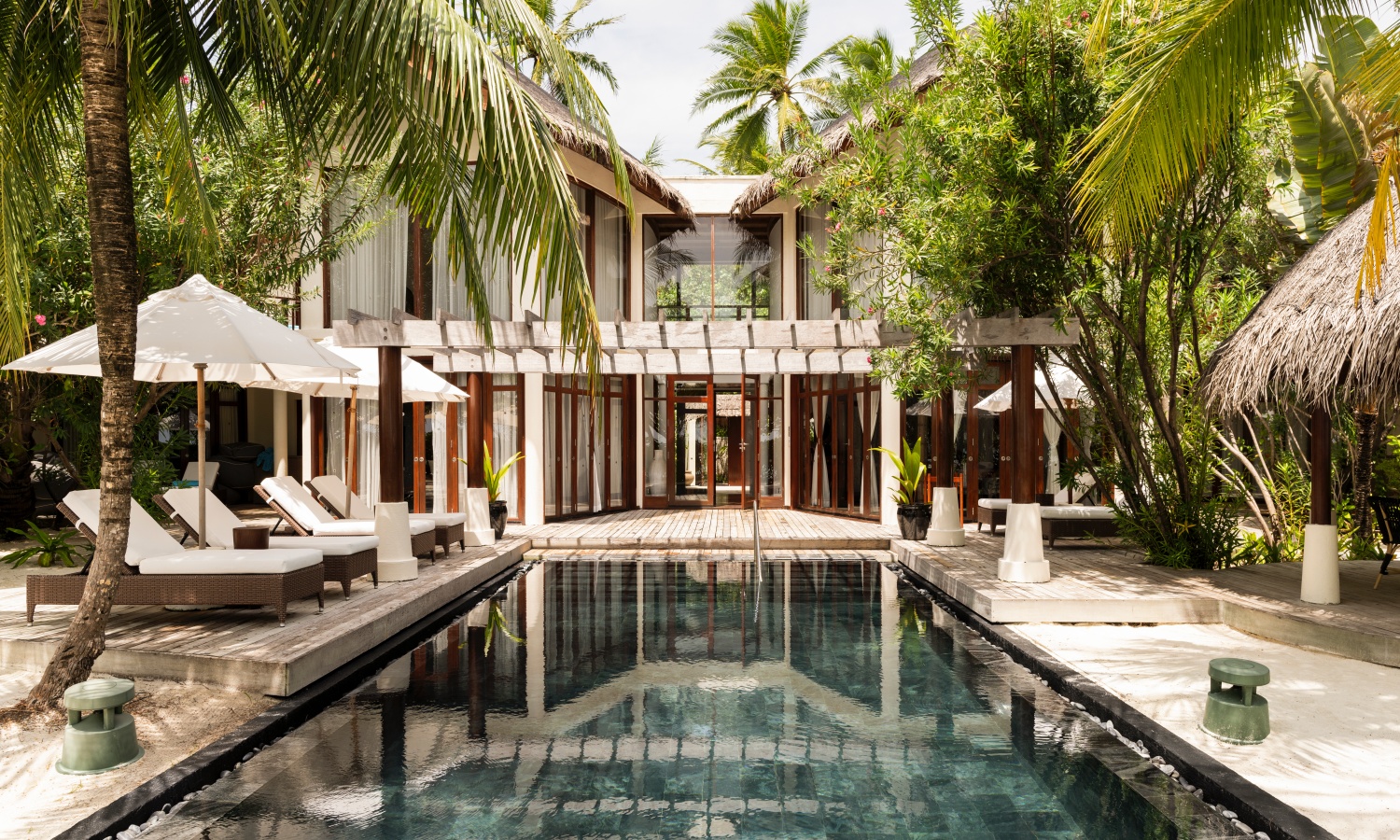
Constance Hospitality has been recognised in the 2026 Traveller Review Awards by Booking.com, with its Maldivian resorts achieving some of the highest scores within the group’s portfolio.
In the Maldives, Constance Halaveli Maldives received an outstanding score of 9.8 out of 10, while Constance Moofushi Maldives achieved 9.7. The ratings, based on verified guest reviews, reflect consistently high levels of guest satisfaction and service delivery.
Constance Halaveli Maldives, known for its spacious overwater and beachfront villas, personalised service and refined dining concepts, continues to perform strongly among travellers. Constance Moofushi Maldives, positioned as a barefoot chic resort with an all-inclusive concept, also maintains a high guest approval rating, supported by its diving experiences and relaxed island atmosphere.
While the wider Constance portfolio across the Indian Ocean was recognised, the Maldives properties stand out as the group’s highest-rated resorts in the 2026 awards cycle.
Commenting on the recognition, Jean-Jacques Vallet, Chief Executive Officer of Constance Hospitality, stated that the awards reflect the professionalism and commitment of the teams on the ground. He added that guest feedback remains central to maintaining service standards and delivering consistent experiences across the group’s destinations.
The recognition reinforces the position of Constance Halaveli Maldives and Constance Moofushi Maldives as leading performers within the Maldives’ competitive luxury hospitality sector.
Featured
Year of the Horse celebrations across Sun Siyam’s Luxury, Privé and Lifestyle resorts
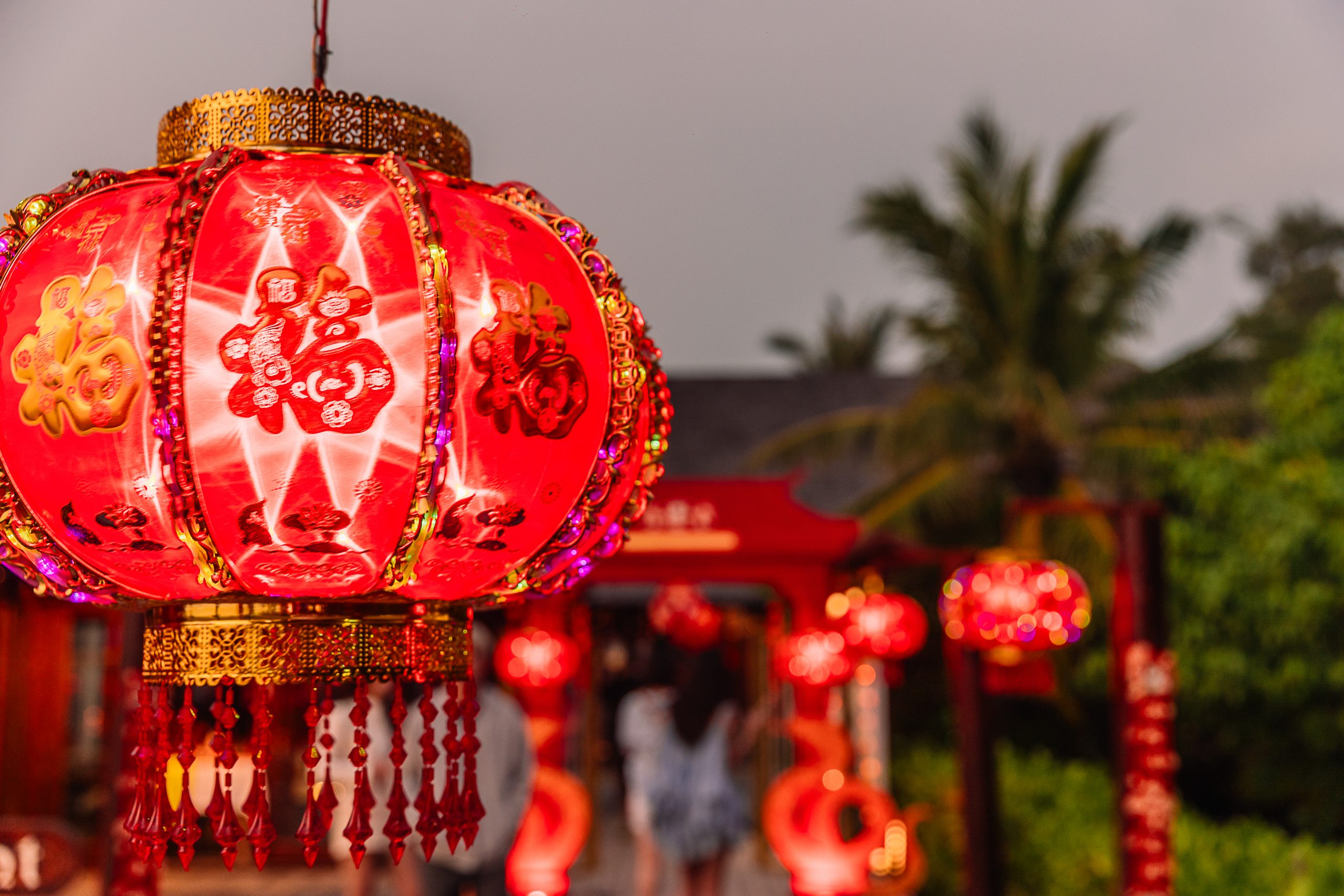
Sun Siyam Resorts is marking the Lunar New Year across its Luxury, Privé and Lifestyle collections with a coordinated programme of cultural experiences, festive dining, music and family-focused activities from 15 to 20 February 2026. Celebrating the Year of the Horse, each resort’s programme reflects its individual character while embracing the spirit of renewal and togetherness associated with the season.
Siyam World – Lifestyle Collection
At Siyam World, Lunar New Year celebrations combine cultural heritage with contemporary island energy. A highlight of the programme is a live showcase featuring Chinese-inspired DJ sets paired with the traditional guzheng, creating a fusion of electronic rhythms and classical melody. Performances by the Chaozhou Shantou lion dance troupe add further cultural depth, with guests invited to observe, participate and learn traditional movements.
Sun Siyam Olhuveli – Lifestyle Collection
Sun Siyam Olhuveli is presenting a relaxed Lunar New Year programme shaped by traditional symbolism and island living. Throughout the week, the resort will host family-friendly cultural activities, traditional performances and live music. Red-themed décor and festive elements will set the tone, while dragon displays and cultural showcases bring movement to the island’s central spaces. The celebrations peak on 16 and 17 February with performances by DJ Slim Belghith, whose international sound will accompany evening festivities.
Sun Siyam Iru Veli – Privé Collection
At Sun Siyam Iru Veli, the Year of the Horse will be marked through a programme that combines cultural traditions with family-oriented experiences. The Kids Club will host themed activities including red envelope crafting, lantern making, zodiac-inspired art and traditional games. The Fire Horse Pool Party at Chemistry will bring families together with music and refreshments. Dining highlights include hot pot lunches and dinners, along with a dedicated Chinese section titled “Flavours of Fortune” at the Aqua Orange buffet. Guests may also enjoy seasonal spa treatments at Ocean Spa designed to promote balance and renewal.
Sun Siyam Vilu Reef – Privé Collection
Sun Siyam Vilu Reef will conclude its celebrations with a Grand Spring Gala Dinner featuring international cuisine alongside Chinese specialities. The evening includes a traditional lion dance performance, filling the island with movement and symbolic gestures intended to welcome prosperity and good fortune.
Sun Siyam Iru Fushi – Luxury Collection
At Sun Siyam Iru Fushi, Lunar New Year celebrations will blend Chinese traditions with Maldivian island experiences. Dining features include beachfront seafood platters, Blue Lobster barbecues and traditional hot pot dinners, complemented by chocolate, cheese and champagne tastings.
Younger guests may take part in dragon dance workshops and lantern painting sessions, while signature resort experiences such as Sunset Jet Car rides, Cinema by Moonlight on a private boat and floating breakfasts add further variety. Evening turndown moments incorporate local Maldivian touches, reflecting the resort’s approach to cultural exchange. With 15 dining venues, family-oriented villas and dedicated adults-only spaces, the resort’s programme is designed to accommodate a broad range of guests.
Commenting on the celebrations, Ahmed Naufal, Group Director of Business Development, noted that China remains an important market for Sun Siyam. He stated that the Lunar New Year celebrations provide an opportunity to honour Chinese traditions while delivering experiences consistent with the group’s standards of hospitality.
Across its Maldivian portfolio, Sun Siyam Resorts presents Lunar New Year as a season of cultural appreciation, shared celebration and renewal by the sea.
Action
LUX Tennis joins St. Regis Maldives Vommuli to expand active lifestyle programme
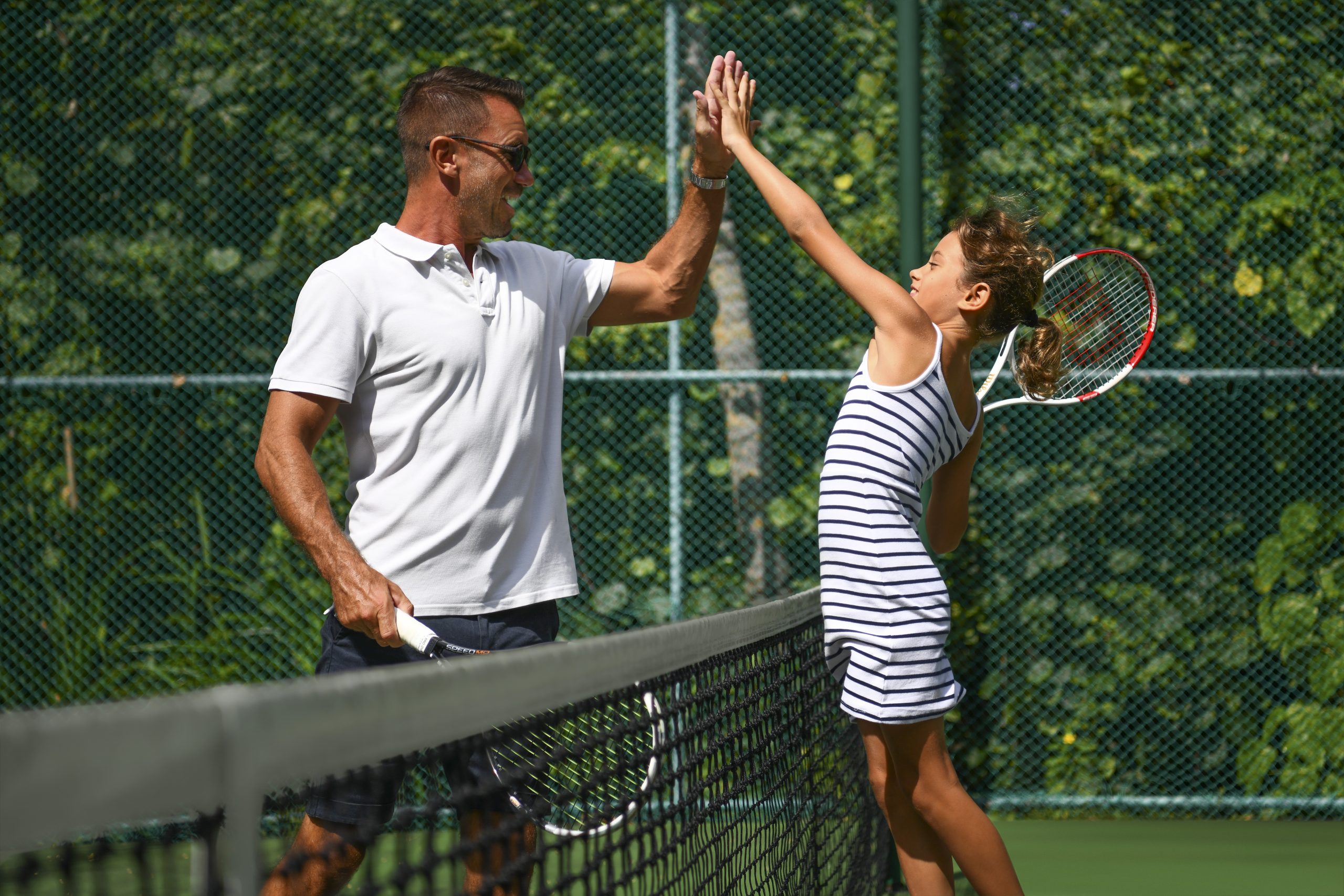
St. Regis Maldives Vommuli Resort has announced a partnership with LUX Tennis, strengthening the resort’s established tennis offering and introducing plans for a new padel court. The collaboration expands the resort’s active lifestyle programme, with a particular focus on families and multi-generational travel.
The St. Regis brand draws on the legacy of the Astor family, founders of the original St. Regis New York, whose Gilded Age lifestyle celebrated refined leisure and sporting pursuits. Tennis, in particular, became a symbol of elegance within the Astor social circle, reflecting a culture shaped by hospitality, recreation and sophistication. This heritage continues across the St. Regis portfolio today, where classic sports remain an integral part of the brand’s identity.
Set within the resort’s private island environment, the enhanced LUX Tennis programme is designed to elevate on-island tennis experiences for guests of all ages and skill levels. The programme features expert-led coaching, bespoke clinics and visiting residencies by internationally recognised professionals, offering guests opportunities to train, play and engage with elite talent in an accessible and inspiring setting.
Confirmed visiting professionals include Angelique Kerber, three-time Grand Slam champion and former world number one, who will visit from 29 to 31 March 2026, and Feliciano López, former Spanish champion with a career-high singles ranking of world number 12, scheduled from 16 to 17 May 2026.
The expanded tennis programme is designed to integrate seamlessly with island life, offering everything from relaxed family matches and junior-friendly coaching to more focused sessions for experienced players. Activities are structured to complement time spent at the beach, spa experiences and family dining.
The St. Regis Maldives Vommuli Resort features 77 beachfront and overwater villas, each with a private pool, alongside facilities such as the John Jacob Astor Estate, the largest overwater three-bedroom villa in the Maldives. Guests also have access to the award-winning Iridium Spa, six dining venues and a private yacht available for charter, reinforcing the resort’s positioning as a destination for both leisure and active pursuits.
-
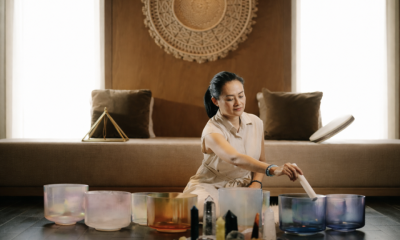
 News1 week ago
News1 week agoThe Ritz-Carlton Maldives, Fari Islands to mark International Women’s Day with ‘Give to Gain’ programme
-
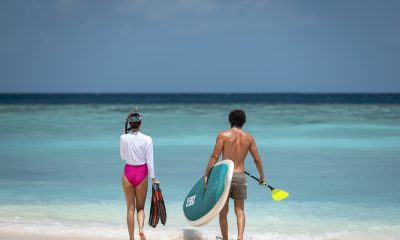
 Action1 week ago
Action1 week agoSimply summer at Milaidhoo: Invitation to slow living in the Baa Atoll
-
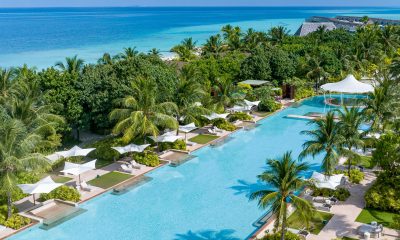
 Culture1 week ago
Culture1 week agoKuda Villingili presents family-focused Eid al-Fitr experience in Maldives
-
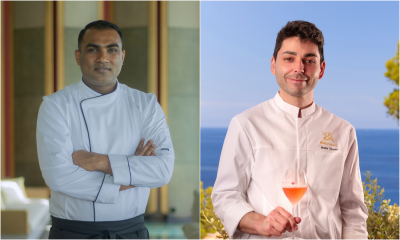
 Cooking1 week ago
Cooking1 week agoMichelin-starred Chef Jaume collaborates with One&Only Reethi Rah’s TAPASAKE for four-hands dinner
-
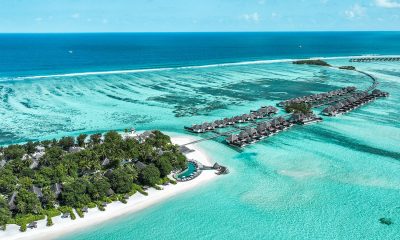
 Featured1 week ago
Featured1 week agoFour Seasons Maldives brings Fire Horse energy to Lunar New Year celebrations
-
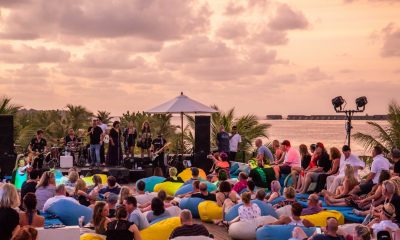
 Entertainment1 week ago
Entertainment1 week agoStrong demand sees Kandooma Maldives 2026 concert series selling out early
-

 Awards1 week ago
Awards1 week agoAtmosphere Core earns triple honours at Layalina Editor’s Choice Awards
-
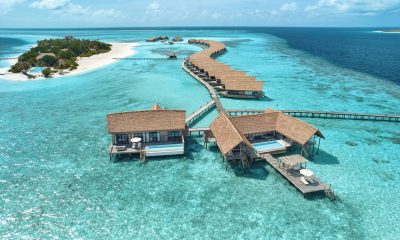
 Love1 week ago
Love1 week agoCOMO Cocoa Island, COMO Maalifushi unveil Lunar New Year, Valentine’s Day celebrations














